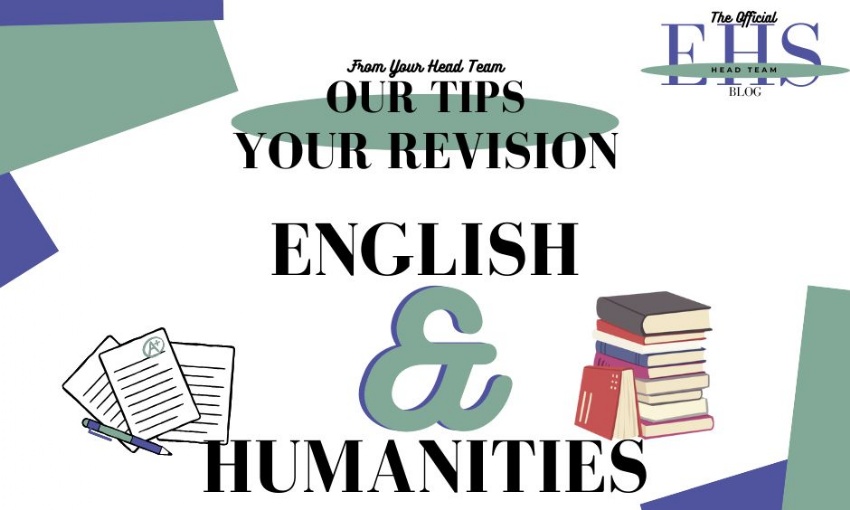English & Humanities

Our revision tips for English and Humanities departments.
Now for some of you this will be the first time you are revising for exam season. Others with have had experience but now as a sixth year I know that many of the ways I revise have been recent developments rather than something I have done all along. A lot has been done this year to promote effective study methods, but nothing can compare to hearing it from pupils who have experience in the specific subject. This blog series will provide an insight into the ways we find it best to revise for specific subjects.
English
For RUAE, I would suggest reading as many news articles as you can. This will help to expand your vocabulary and understanding of non-fiction writing. Practising a full past paper, including reading and highlighting the text before answering the questions, provides extra practice that there just isn’t enough time to fit into the busy course.
For the textual analysis section, I have experience studying poetry and having the full set of poems fully highlighted and analysed is invaluable. That includes a list of the key themes and concerns. Picking out quotes with analysis you personally understand that can fit to as many questions as possible.
Written & Researched by Darcy Robson
Modern Studies/Politics
I first like to list all the potential questions that can be asked. Usually, they are quite easy to find and a quick look at SQA past papers shows that many questions are repeated. The best thing to do after this is make sure that you have a plan for each question. Focussing on points and examples is an efficient way to limit the amount to remember if, like me, you struggle to remember a lot of information. I find an effective way to memorise is by creating a single sheet of paper with all examples. Generally, one sheet per topic.
You obviously can’t overlook the source questions and the best way to deal with them is to memorise the structure and to repeat past paper questions. Make sure to get them marked to identify issues early.
Written & Researched by Darcy Robson
History
The first section of the exams, the essays, can be revised by blurting all you know onto a page and then filling in any gaps in knowledge using your notes. This can help identify both what you know and what you don’t. In between these exercises, flashcards can be used to solidify knowledge. For the source questions, you must be able to differentiate how to answer each question. Laying out model answers as a basis can be useful. Timing your practice of source questions can allow you to feel more comfortable when you get down to the exam.
Written by Darcy Robson from the research of Millie Thomson
Geography
To make accurate flashcards, collating points from the mark scheme can help identify the extensive necessary information that can be used in the exam questions. Marks can be picked up in the physical geography section through memorising the formational processes which can be used to answer many of the questions. Human geography is best revised through mind-maps to condense all the different points onto a single sheet.
Written by Darcy Robson from the research of Lucy Cathrow
RMPS
Each of the three sections of the course can be revised by writing essays that you can then get marked. This will flag any mistakes. Knowing where different marks are allocated (knowledge, analysis, evaluation) is also helpful as this will help you to identify where needs more focus. The best way to revise for specific essay questions is through mind maps and flashcards. Any support you need can be found in revision sessions run by the RMPS department.
Written by Darcy Robson from the research of Millie Thomson
We hope you’ve picked up something from our revision guide. We have a guide for each faculty and subject in the school, so go and check out what we have to say about all your other subjects. You might just learn a few tips and tricks.
